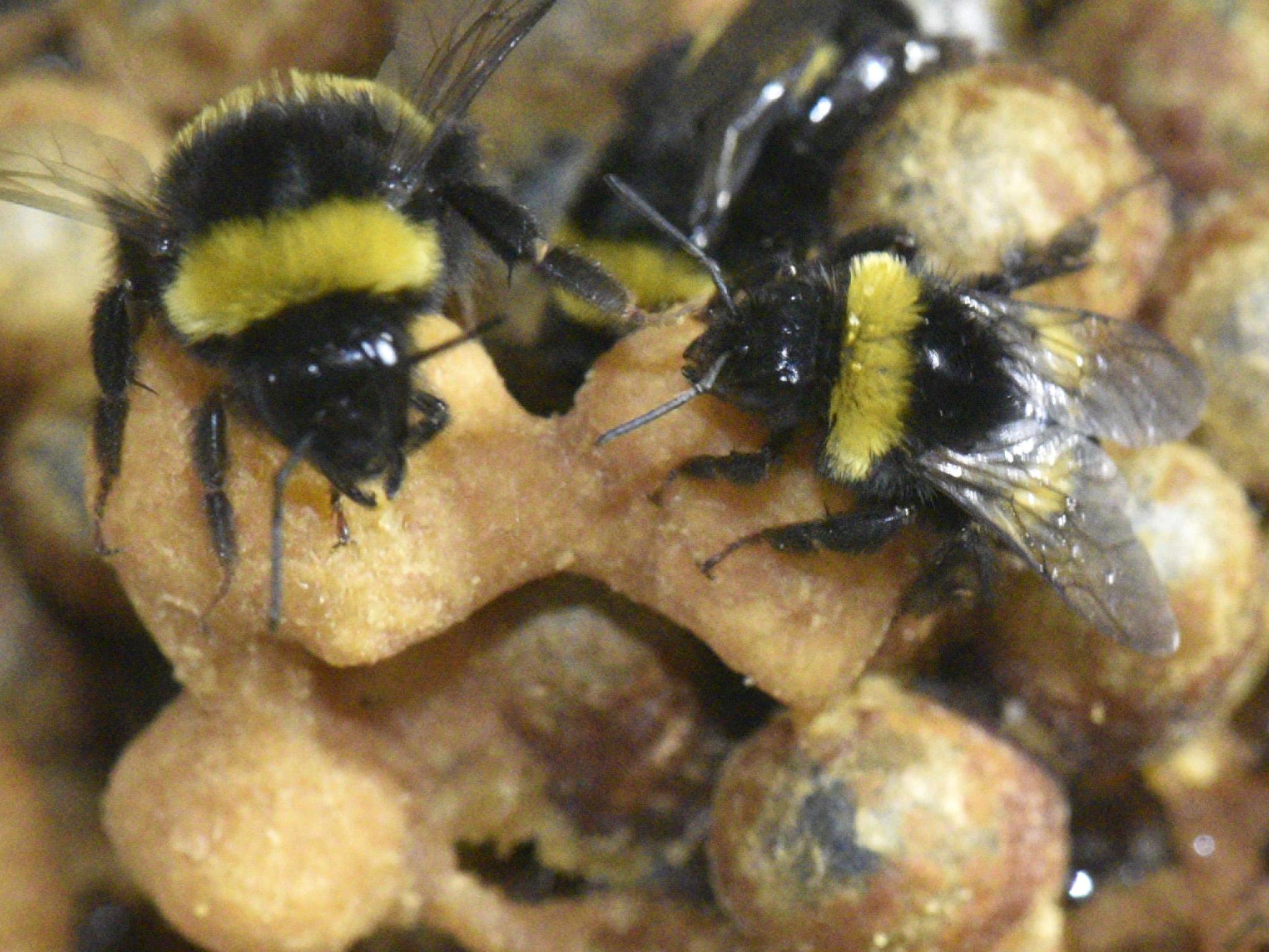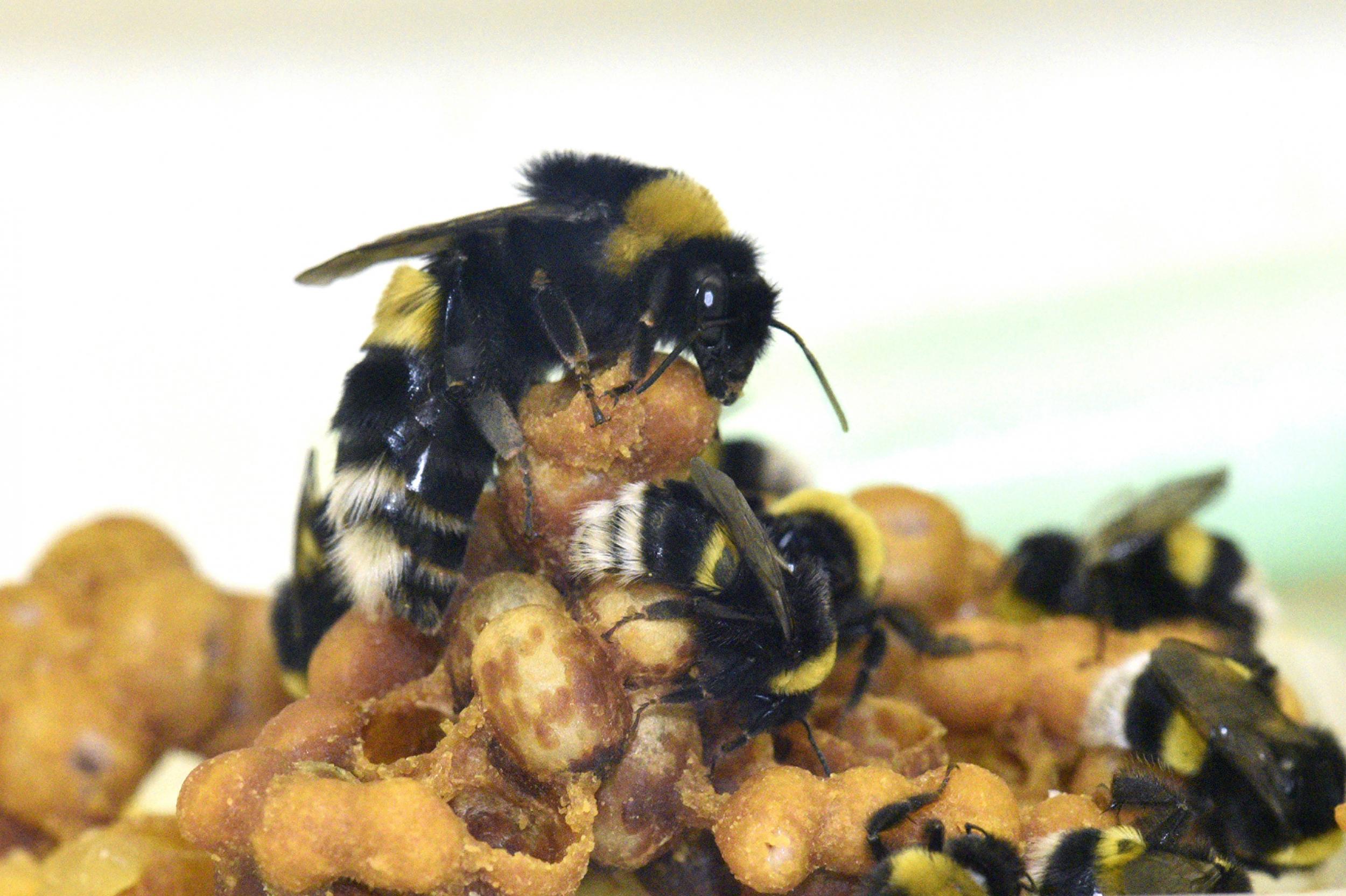Bumblebee parents miss out on sleep while caring for young, study finds
Chemicals produced by offspring could be causing their carers to be able to function on less sleep

Your support helps us to tell the story
From reproductive rights to climate change to Big Tech, The Independent is on the ground when the story is developing. Whether it's investigating the financials of Elon Musk's pro-Trump PAC or producing our latest documentary, 'The A Word', which shines a light on the American women fighting for reproductive rights, we know how important it is to parse out the facts from the messaging.
At such a critical moment in US history, we need reporters on the ground. Your donation allows us to keep sending journalists to speak to both sides of the story.
The Independent is trusted by Americans across the entire political spectrum. And unlike many other quality news outlets, we choose not to lock Americans out of our reporting and analysis with paywalls. We believe quality journalism should be available to everyone, paid for by those who can afford it.
Your support makes all the difference.It’s not just human parents that feel chronically exhausted due to lack of sleep while looking after their young.
Scientists say worker bees also get less sleep when they’re caring for larvae – even if they’re looking after offspring that are not their own.
Certain chemicals produced by the pupae could be causing their carers to be able to function on less sleep, according to the study published in Current Biology.
Scientists found nurse bees not only sacrificed their shuteye to look after the larvae, they continued to sleep less when the brood moved on to their pupal stage and no longer needed to be fed.
However, when the pupae and the chemicals they produce were removed the bees did not show a sleep rebound, suggesting they were not sleep deprived in the expected way, the study found.

Guy Bloch, a professor at the Hebrew University of Jerusalem and study co-author, said: “Our findings show that sleep is more plastic and less rigid than is commonly accepted.
“With bees, if there is no cost for sleep loss, it means that the brood-tending bees have a mechanism that allows them to significantly reduce sleep without a cost to their brain or other tissue.
“This, of course, raises the question about what exactly are these mechanisms and what is the basic function of sleep.”
Worker bees are sterile females who make up the largest percentage of bees in a hive. They begin their lives as nurse bees, caring for and cleaning up after the queen and feeding the larvae, before moving on to the role of caring for the entire colony.
Scientists studied brood-tending bumblebees and analysed their sleep behaviour by performing sleep disturbance experiments.
Previous research has shown worker bees adjust their sleep patterns depending on their role in the colony – with foragers showing strong sleep and wake cycles, and nurse bees working around the clock to tend the brood.
Moshe Nagari, a postdoctoral fellow at the Hebrew University of Jerusalem and lead author, added: “The fact that the nursing bees sleep so little, even when caring for pupae that do not need to be fed, was the most surprising.
“Before this study, we assumed that the main functions of activity around the clock without circadian rhythms in nurse bees is to provide improved feeding to the developing larvae, enabling them to grow rapidly.”
The study adds to emerging evidence that like humans, animals are able to give up sleep if they need to. Researchers say other animals – such as birds and fish – have shown the ability to give up sleep in certain circumstances.
Birds, for example, sleep less during their seasonal migrations while some cavefish have evolved to sleep less compared with their counterparts that live in open water habitats.
Some male birds and fruit flies will also sacrifice their sleep to give themselves more time to mate.
The team say their findings open the door to further research on whether sleep deprivation affects health or cognitive performance.
Additional reporting by PA
Join our commenting forum
Join thought-provoking conversations, follow other Independent readers and see their replies
Comments